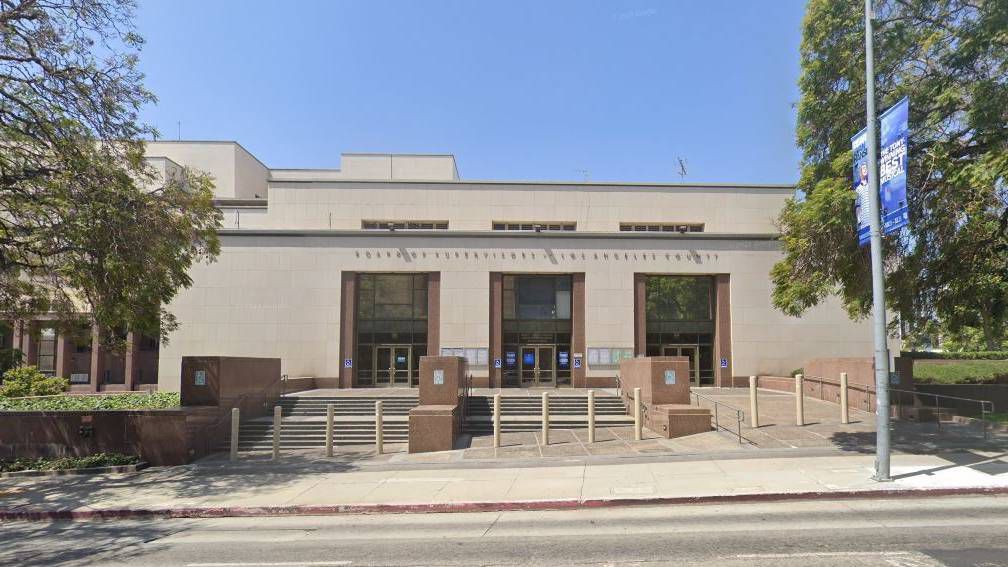LOS ANGELES — Los Angeles County Supervisors Lindsey Horvath and Janice Hahn unveiled a proposal Wednesday to revamp county government, in part by expanding the Board of Supervisors from its current five members to nine.
Their proposal would also establish an independent ethics commission and make the county CEO an elected position.
Since the measure requires a change to the County Charter, the proposals would have to be approved by voters. Horvath and Hahn will present the proposal to the full board next week, with the goal of placing the matter on the November ballot.
“The last time the county meaningfully changed its form of governance was in 1912, before women had the right to vote, far before the end of segregation and well before comprehensive labor rights took hold,” Horvath said, calling the proposal “the most comprehensive reform package for Los Angeles County government in over 100 years.”
Horvath and Hahn stressed that the proposal focuses on representation, efficiency and transparency in the governance structure for about 10 million residents of the county.
“Today, five elected supervisors serve the most populous county in the nation, each representing 2 million constituents. Now is the time to reform Los Angeles County’s form of government to be responsive to our region’s greatest challenges,” according to a statement outlining the proposals.
Addressing the transition to an elected CEO, Horvath said it would serve to increase transparence and accountability.
“Separating out the executive authority from the legislative body is typical in most governments throughout the country, and this allows for accountability and a check and balance on the process,” she said.
The supervisors said expanding the board without establishing an elected CEO who wasn’t directly accountable to the voters would make the government less transparent.
The proposals unveiled by Horvath and Hahn also include a commission that would review the county Charter every 10 years, creation of a Department of Budget and Management and a County Legislative Analyst, annual open departmental budget hearings and creation of a task force to oversee the implementations of the changes.
Horvath and Hahn both stressed that the proposed changes would not involve any sort of tax hike.
“This proposal requires that it does not come at additional cost to the taxpayers, that we work within our budget,” Horvath said. “And with a $46 billion budget, I know we can do it.”
Hahn added, “We are not raising the taxes for this government reform.”
In their statement outlining the proposals, they noted, “We can no longer let a dated bureaucracy prevent us from more effectively addressing our homelessness crisis, making real progress on justice reform, or actualizing a government where Angelenos can meaningfully be at the decision-making table,” according to the supervisors’ statement.
“Reform has been studied for decades — the time to act is now. This is the change our communities have called for and now voters have an opportunity to bring Los Angeles County into the 21st Century this November.”
In February of 2023, the board approved a motion by Horvath and Supervisor Holly Mitchell calling for a sweeping study of county governance, including a call for recommendations to improve public participation and representation of residents, possibly by expanding the size of the Board of Supervisors.
Other possibilities suggested in the motion included:
- an extended process allowing more time for public review of proposed motions that go before the board for a vote, sometimes within days of being published;
- a procedure for routinely evaluating the county charter, county codes and board “parliamentary processes”;
- a review of the county’s budgeting process with an eye toward increasing “efficiency, transparency and equitable outcomes”; and
- a review of possible structural changes to the Board of Supervisors itself, including a potential expansion of its membership “to achieve more equitable representation.”
Horvath said at the time the motion was “about being the best county government possible,” saying the board has “an enormous responsibility” to govern 10 million residents and manage a $44 billion budget. She said the idea is to ensure the board is enacting “practices that give the public more of a seat at the table.”
The concept of expanding the board has surfaced repeatedly over the years — as far back as 1926 — but it has never gained traction. Voters have rejected the idea on eight different occasions.
But Hahn said she expects a more favorable reception from voters.
“We’ve talked to voters and they overwhelmingly support expanding the board in this moment,” she said.
If the board moves forward with the proposals on Tuesday, an ordinance will be drafted with the proposed Charter amendments which would then go to voters in November.
“From there, three representative bodies will be created,” Horvath said. Those bodies are a Charter Reform Task Force to oversee the implementation, a Charter Review Commission to convene every 10 years and an independent Ethics Commission by 2026.
The proposal also establishes that the county CEO be an elected position beginning in 2028, with board expansion planned for 2032.



